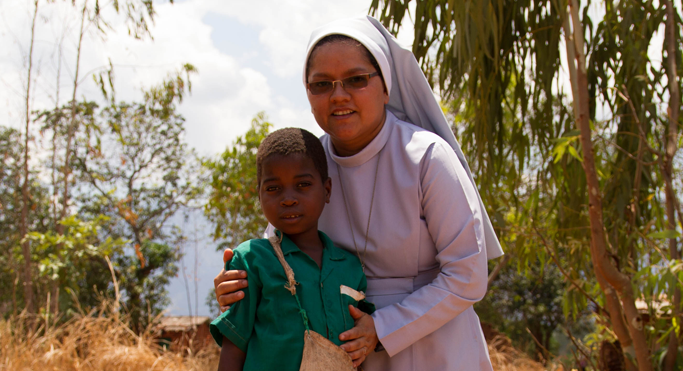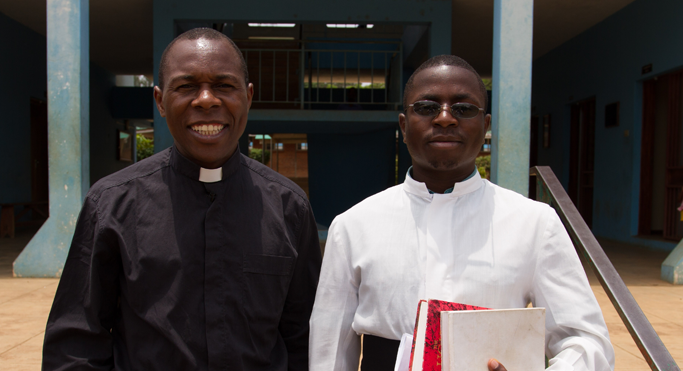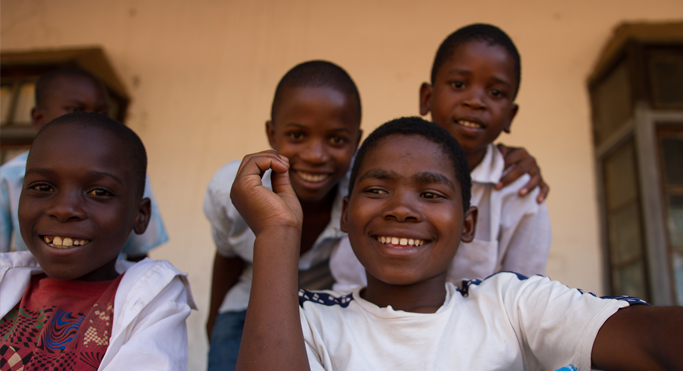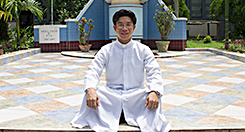This October, the global Church has come together for the XVI General Assembly of the Synod of Bishops. The Synod explores all aspects of the direction of the future Church, taking into account the voices and experiences from parishes and communities across the world.
This Synodal journey began in 2021, when the Vatican consulted local Churches and communities in every continent and produced local and national reports. The October 2023 session of the Synod concluded with a ‘Synthesis report’ entitled: A Synodal Church in Mission. The report states:
‘Rather than saying that the Church has a mission, we affirm that the Church “is” mission. “As the Father has sent me, so I send you” (John 20:21)’.
Mission is the foundation
The text affirms that the mission of proclaiming the Gospel is the sole reason for the Church’s existence. And because, going forward, this text will be a guiding principle for any reforms and changes in the Church’s institutions and dynamics, it seems clear that mission is set to be the foundation and the purpose throughout the entire Catholic family.
The missionary character of the Synodal Church comes through most clearly in chapter 8 of the report, entitled The Church is mission. And most encouraging of all, every paragraph in chapter 8 was approved by the members of the Synod Assembly, with almost unanimous consensus.
Agents of the mission of Jesus
In the first paragraph of Chapter 8, we read that the Church receives the mission of Christ, the one sent by the Father: her mission. Sustained and guided by the Holy Spirit, she proclaims and bears witness to the Gospel to those who do not know it or welcome it, with that preferential option for the poor that has its roots in the mission of Jesus. In this way, it contributes to the coming of the Kingdom of God, of which it ‘constitutes the seed and the beginning’.
Every Christian is a mission
The first Sacraments of Christian life, the chapter reminds us:
‘…confer on all the disciples of Jesus the responsibility for the mission of the Church. Laymen and laywomen, those in consecrated life, and ordained ministers have equal dignity. They have received different charisms and vocations and exercise different roles and functions, but all are called and nourished by the Holy Spirit to form one body in Christ (1 Corinthians 4-31). They are all disciples, all missionaries, in the reciprocal vitality of local communities who experience the delightful and comforting joy of evangelising.’
In this framework, the report highlights:
‘The exercise of co-responsibility is essential for synodality and is necessary at all levels of the Church. Each Christian is a mission on this earth.’
The missionary family and the role of young people
The report goes on to highlight the vital and unique mission of the laity within the Church family, and in particular, families:
‘Parents and grandparents and all those who live and share their faith in the family are the first missionaries. The family, as a community of life and love, is a privileged place of education in faith and Christian practice, one that needs special accompaniment within communities.’
It also picks up on a theme which is close to the Holy Father’s heart: that we cannot separate our faith from everyday life:
‘If the mission is a grace involving all the Church, the lay faithful contribute in a vital way to advancing that mission in all areas and in the ordinary situations of every day. Above all, it is they who make the Church present and who proclaim the Gospel, for example, in digital culture, which has such a strong impact throughout the world; in youth culture; in the world of work and business, politics, and the arts and culture; in scientific research, education, and training; in the care of our common home; and especially through participation in public life. Wherever they are present, they are called to witness to Jesus Christ in daily life and to explicitly share the faith with others.’
The report acknowledges the specific and unique role for the youth of the Church:
‘In a special way, young people, with their gifts and fragilities, growing in friendship with Jesus, become apostles of the Gospel to their peers.’
The report underlines that lay people are:
‘Also increasingly present and active in service within Christian communities. Many of them organise and animate pastoral communities, serve as religious educators, theologians and formators, spiritual animators and catechists, and participate in various parish and diocesan bodies. In many regions, the life of Christian communities and the mission of the Church depends upon catechists’.
However, the report makes it clear that the charisms of the laity are distinct from those of Religious and calls for the charisms of the laity – the ‘gifts of the Holy Spirit to the Church’ – to be ‘brought to light, recognised and fully valued’.
‘In some situations, the laity may be called to help make up for the shortage of priests, with the danger that the lay character of their apostolate risks being diminished. In other contexts, it may be that priests do everything themselves and thus the charisms and ministries of the laity are ignored or underutilised.’
In the approved text, explicit reference is made to the ‘danger, expressed by many at the Assembly, of ‘clericalising’ the laity, creating a kind of lay elite that perpetuates inequalities and divisions in the People of God’.
The mission ad Gentes as an exchange of gifts
The practice of the mission ad gentes, carried out by missionaries who leave their land of origin to carry out their apostolic work in other lands, is re-proposed in the Report as:
‘a reciprocal enrichment of the Churches, because it does not only involve the missionaries, but the entire community, which is encouraged to pray, share goods and bear witness’.
We cannot abandon this offer of encounter, or consider as a practice of the past even by churches which lack clergy, while:
‘[churches] with more vocations to the ordained ministry benefit from cooperating pastorally in a genuinely evangelical manner. All the missionaries — laymen and women, those in consecrated life, deacons and priests, and particularly the members of missionary institutes and fidei donum missionaries — are an important resource for creating bonds of knowledge and exchange of gifts.’
A Church built by all, for all
The report acknowledges:
‘…the reality is that pastoral practice at the parish, diocesan and, recently, even universal levels, increasingly entrusts lay people with tasks and ministries within the Church itself. Theological reflection and canonical provisions need to be reconciled with these important developments and to avoid dualisms that could compromise the perception of the unity of the Church’s mission.’
The report also highlights the apostolic potential of people with disabilities in particular:
‘In the promotion of the co-responsibility of all the baptised for mission we recognise the apostolic capacities of persons with disabilities. We want to better value the contribution to evangelisation offered by the immense richness of their humanity. We recognise their experiences of suffering, marginalisation and discrimination, sometimes occurring even within the Christian community.’
While pastoral structures,
‘…need to be re-organised so they can readily recognise, call forth, and animate lay charisms and ministries, inserting them into the missionary dynamism of the synodal Church. Under the guidance of their pastors, the communities will be able to send people as well as sustain those they have sent on mission. In this way, these structures will primarily be at the service of the mission that the faithful carry out within society, in the family, and in work life, rather than focusing exclusively on internal matters or organisational concerns.’
New ecclesial ministries for the laity
In its conclusion and proposal, the report calls for a creative Church which establishes ministries according to the needs of local Churches:
‘One can think of further expanding responsibilities assigned to the existing ministry of lector, responsibilities that are already broader than those performed in the liturgy. This could become a fuller ministry of the Word of God, which, in appropriate contexts, could also include preaching. We could also explore the possibility of establishing a ministry assigned to married couples committed to supporting family life and accompanying people preparing for the Sacrament of Marriage.’
A Church on the move
While there are still many issues to discuss, we can nonetheless rejoice in the message that each and every one of us is a mission on earth, and the mandate to ‘go forth’ and encounter each other, throughout our daily lives, whether we are consecrated or lay missionaries. Far from being irrelevant, mission is indeed more vital than ever. We look forward with faith, renewed in our commitment to build a Church for everyone, by everyone, recognising that we all have our part to play.






